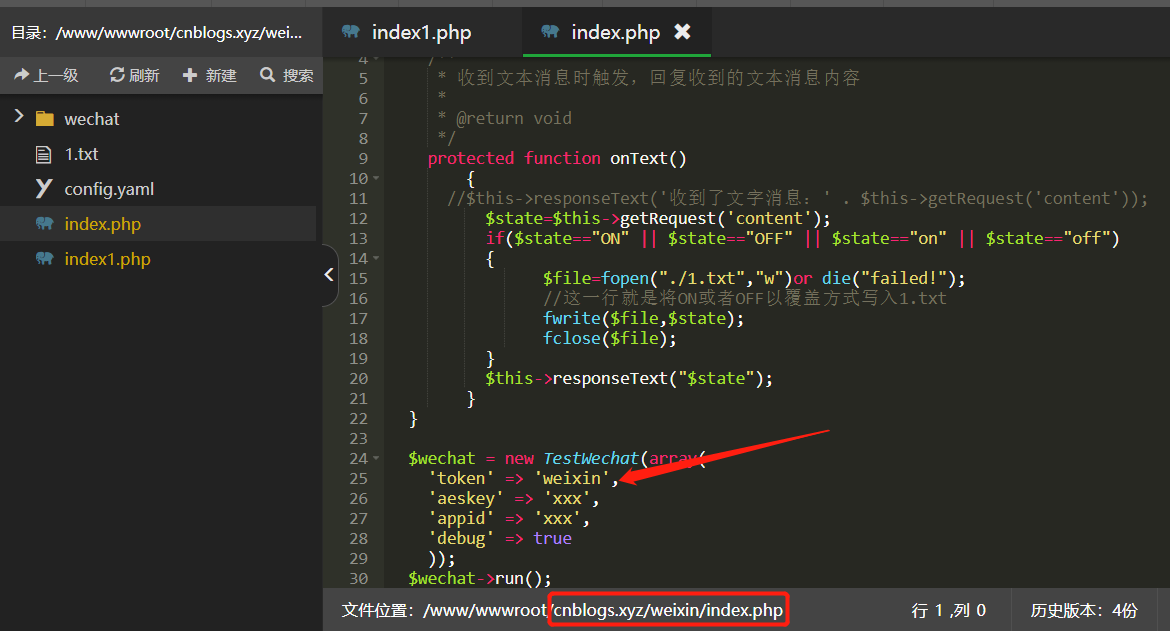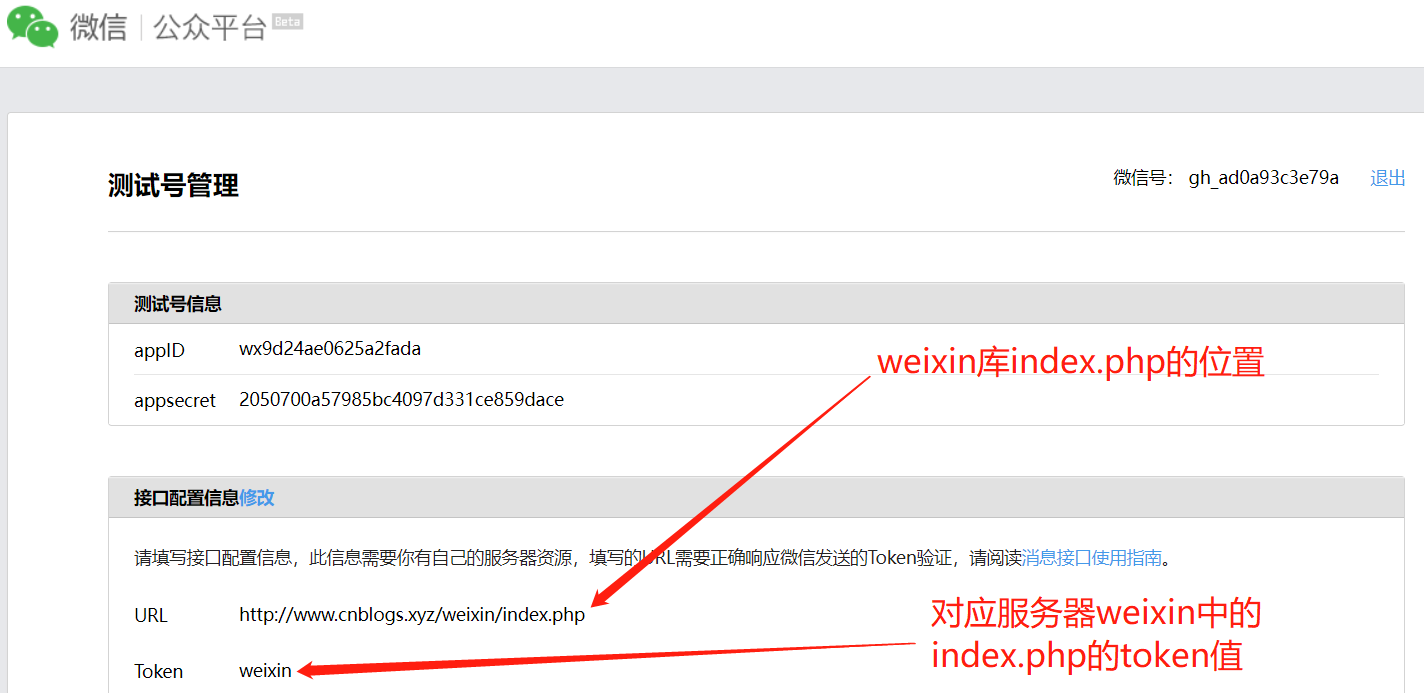1.乐鑫官网
2.ESP32踩坑
ESP32控制摇杆,定义sw的引脚时一定要设置为上拉才行。
微信控制ESP8266操控舵机(使用MicroPython)

import network import socket #网络套接字和python一样 from machine import Pin,PWM import time UDP_server_addr = ('115.28.93.201', 7005) #115.28.93.201 端口:UDP 7005 SSID = your_wifi_ssid #路由器名称 PASSWORD = your_wifi_password #路由器密码 wlan = network.WLAN(network.STA_IF) UserID = your_user_ID DeviceID = your_device_id MM = your_mm #16位密码 servo1 = PWM(Pin(12), freq = 50) servo1.duty(130) servo2 = PWM(Pin(14), freq = 50) servo2.duty(130) time.sleep(2) servo1.deinit() servo2.deinit() client = socket.socket(socket.AF_INET, socket.SOCK_DGRAM) #生成新的套接字对象 Heart = r"004532A01" + DeviceID + MM + r"123401hi05" #心跳包 # 连接网络 def do_connect(): wlan.active(True) if not wlan.isconnected(): print('connecting to network...') wlan.connect(SSID, PASSWORD) start = time.time() while not wlan.isconnected(): time.sleep(1) if time.time()-start > 5: print("connect timeout!") break #如果连接成功 if wlan.isconnected(): print('network connect success . \nnetwork config:', wlan.ifconfig()) def shakeHand_UDP_server(): global client client = socket.socket(socket.AF_INET, socket.SOCK_DGRAM) #生成新的套接字对象 client.settimeout(5) #设置连接超时时间 while True: print("sendto: " + Heart) len = client.sendto(Heart, UDP_server_addr) #向服务器发送心跳包 print("sendlen : " + str(len) ) time.sleep(0.5) try: print("now recv...") data, addr = client.recvfrom(64) #接收心跳包数据 print(b"recv :" + data) break except: print("recv error!") time.sleep(10) def revMsgAndKeepConnect (): client.settimeout(20) #设置连接超时时间 time.sleep(0.2) try: print("try recv data...") data, addr = client.recvfrom(64) #从服务器接收数据 print(b"recv: " + data) if b'open' in data: DataFlag = data[9:13] SendData = b'005532A01' + DeviceID + MM + DataFlag + b'09' + UserID + b'OK05' print(b"sendto: " + SendData) servo1.init(duty = 20) servo2.init(duty = 20) client.sendto(SendData, UDP_server_addr) #向服务器发送数据转为bytes time.sleep(4) servo1.duty(130) servo2.duty(130) time.sleep(1) servo1.deinit() servo2.deinit() else: pass except: client.sendto(Heart, UDP_server_addr) #向服务器发送心跳包 print("sendto heart:" + Heart) if __name__=='__main__': time.sleep(1) do_connect() shakeHand_UDP_server() while True: revMsgAndKeepConnect()
ESP32与PC端使用阿里云物联网平台通过MQTT发布订阅消息(使用MicroPython)

from umqtt.simple import MQTTClient import usocket as socket import time import wifi wifi.connect() #Demo_01 ProductKey = "*********"#使用你自己的 ClientId = "1234|securemode=3,signmethod=hmacsha1|" DeviceName = "Demo_01" DeviceSecret = "*******************************"#使用你自己的 strBroker = ProductKey + ".iot-as-mqtt.cn-shanghai.aliyuncs.com" Brokerport = 1883 user_name = "Demo_01&*********"#使用你自己的 user_password = "**********************************************"#使用你自己的 print("clientid:",ClientId,"\n","Broker:",strBroker,"\n","User Name:",user_name,"\n","Password:",user_password,"\n") def connect(): client = MQTTClient(client_id = ClientId,server= strBroker,port=Brokerport,user=user_name, password=user_password,keepalive=60) #please make sure keepalive value is not 0 client.connect() temperature =25.00 while temperature < 30: temperature += 0.5 send_mseg = '{"params": {"IndoorTemperature": %s},"method": "thing.event.property.post"}' % (temperature) client.publish(topic="/sys/*************/Demo_01/thing/event/property/post", msg=send_mseg,qos=1, retain=False)#*号处为product id time.sleep(3) while True: pass #client.disconnect()

# coding=utf-8 import datetime import time import hmac import hashlib import math try: import paho.mqtt.client as mqtt except ImportError: print("MQTT client not find. Please install as follow:") print("pip install paho-mqtt") # 设置连接信息 #Demo_02 ProductKey = "*********"#使用你自己的 ClientId = "2234" # 自定义clientId DeviceName = "Demo_02" DeviceSecret ="************************************8**"#使用你自己的 # 获取时间戳(当前时间毫秒值) us = math.modf(time.time())[0] ms = int(round(us * 1000)) timestamp = str(ms) # 计算密码(签名值) def calculation_sign(signmethod): data = "".join(("clientId", ClientId, "deviceName", DeviceName, "productKey", ProductKey, "timestamp", timestamp)) if "hmacsha1" == signmethod: # ret = hmac.new(bytes(DeviceSecret), # bytes(data), hashlib.sha1).hexdigest() ret = hmac.new(bytes(DeviceSecret, encoding="utf-8"), bytes(data, encoding="utf-8"), hashlib.sha1).hexdigest() elif "hmacmd5" == signmethod: # ret = hmac.new(bytes(DeviceSecret, encoding="utf-8"), # bytes(data, encoding="utf-8"), hashlib.md5).hexdigest() ret = hmac.new(bytes(DeviceSecret, encoding="utf-8"), bytes(data, encoding="utf-8"), hashlib.md5).hexdigest() else: raise ValueError return ret # ====================================================== strBroker = ProductKey + ".iot-as-mqtt.cn-shanghai.aliyuncs.com" port = 1883 client_id = "".join((ClientId, "|securemode=3", ",signmethod=", "hmacsha1", ",timestamp=", timestamp, "|")) username = "".join((DeviceName, "&", ProductKey)) password = calculation_sign("hmacsha1") print("="*60) print(strBroker) print("client_id:", client_id) print("username:", username) print("password:", password) print("="*60) # 成功连接后的操作 def on_connect(client, userdata, flags, rc): print("OnConnetc, rc: " + str(rc)) # 成功发布消息的操作 def on_publish(client, msg, rc): if rc == 0: print("publish success, msg = " + msg) # 成功订阅消息的操作 def on_subscribe(mqttc, obj, mid, granted_qos): print("Subscribed: " + str(mid) + " " + str(granted_qos)) def on_log(mqttc, obj, level, string): print("Log:" + string) def on_message(mqttc, obj, msg): curtime = datetime.datetime.now() strcurtime = curtime.strftime("%Y-%m-%d %H:%M:%S") print(strcurtime + ": " + msg.topic + " " + str(msg.qos) + " " + str(msg.payload)) on_exec(str(msg.payload)) def on_exec(strcmd): print("Exec:", strcmd) strExec = strcmd if __name__ == '__main__': mqttc = mqtt.Client(client_id) mqttc.username_pw_set(username, password) mqttc.on_message = on_message mqttc.on_connect = on_connect mqttc.on_publish = on_publish mqttc.on_subscribe = on_subscribe mqttc.on_log = on_log mqttc.connect(strBroker, port, 120) # mqttc.loop_start() time.sleep(1) temperature =27.55 mqttc.subscribe("/sys/************/Demo_02/thing/service/property/set", qos=1) # 换成自己的 #send_mseg = '{"pm_25": %s,"area":"%s","time":"%s"}' % (0, 0, datetime.datetime.now()) #send_mseg = '{"id": "1234", "version": "1.0","params": {"IndoorTemperature": %s},"method": "thing.event.property.post"}'%(temperature) send_mseg = '{"params": {"IndoorTemperature": %s},"method": "thing.event.property.post"}' % (temperature) print('send_mseg is : ',send_mseg) mqttc.loop_forever()
6.APP控制ESP32
点灯blinker app:
三分钟实现手机控制Arduino/esp8266/esp32
Blynk app:
7.微信公众号控制ESP32
使用MicroPython开发ESP32(04):无线网络使用和WebREPL
ESP32教程大全:http://mc.dfrobot.com.cn/thread-271930-1-1.html
成果:
7.1微信公众号控制LED(缺点:所有人修改同一个文件,不适合多人使用)
第一步:在阿里云或其他云买服务器和域名,服务器开启8888 20 443 22等端口,然后上传weixin库到根目录

第二步:申请公众号(这里可以使用微信公众平台测试账号)并开启设备功能然后绑定服务器接口(URL填写weixin库的index.php的位置,这里我填的是http://www.cnblogs.xyz/weixin/index.php, token填写index.php文件中token的值,这里我填的是weixin)

第三步:上载urequests.py库(文件中已上传)到ESP32开发板中,示例代码也可以另存到ESP32开发板中;然后插上传感器,运行代码,打开公众号发送‘on’或‘off’来控制红灯亮灭。

# 说明:微信公众号控制LED # 使用ESP32 micropython API中提供的库来创建web服务器 try: import usocket as socket except: import socket from machine import Pin import network # 使用ESP32 micropython API中提供的network库来建立网络连接 import urequests import esp esp.osdebug(None) import gc gc.collect() # 清理内存 # wifi名称及密码 ssid = 'TP-LINK_ZLTech' password = 'zhonglingkeji' # 把wifi模式设置为STA模式,连接路由器模式并激活 station = network.WLAN(network.STA_IF) station.active(True) station.connect(ssid, password) while station.isconnected() == False: # 判断wifi连接是否成功 pass print('Connection successful') print(station.ifconfig()) # 显示IP地址 led = Pin(26, Pin.OUT) try: while True: res = urequests.get('http://www.cnblogs.xyz/weixin/1.txt').text # print(res) if res == 'on' or res == 'ON': print('LED ON') led.value(1) if res == 'off' or res == 'OFF': print('LED OFF') led.value(0) print() finally: print('Connection closed')

注意:坑1:使用过另一个urequests.py库,不过在ESP32发送请求时会每隔一段时间报错一次OSError23,不好用。
